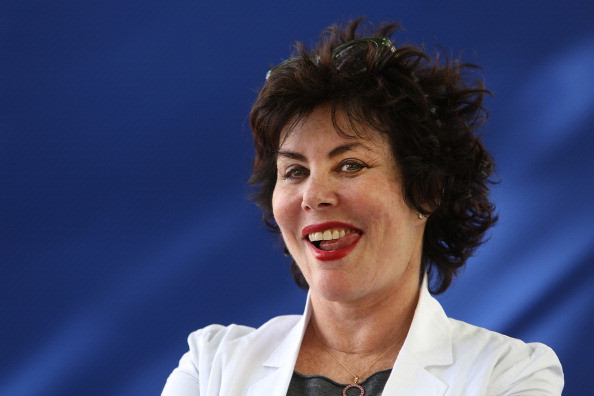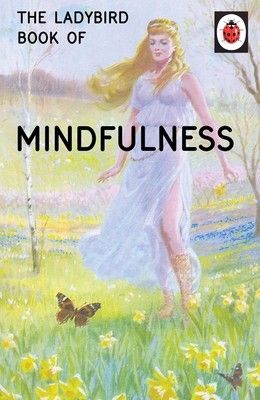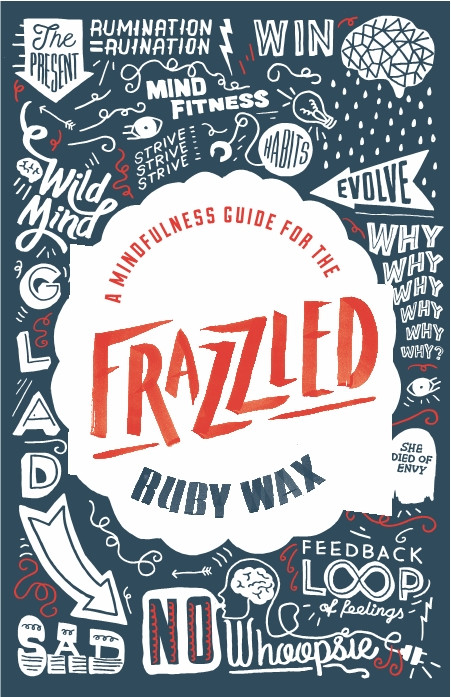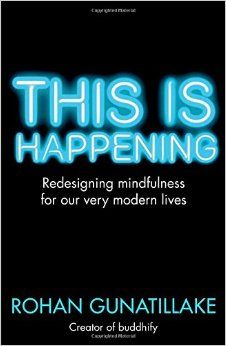The mindfulness craze rolls on with Ruby Wax as its latest champion - but does it really work?

Mindfulness has become established as a lifestyle staple, widely touted as the solution for stress, anxiety and other mental health issues. Its latest champion is Ruby Wax and she has a new self-help book out on the topic.
A Mindfulness Guide For The Frazzled (Penguin) sees the comedian, TV presenter and mental health campaign seeking to break the idea down into everyday application. Simultaneously, mindfulness is also being mocked in the occasionally hilarious Ladybird Book Of Mindfulness (Michael Joseph). It has become hard to escape mindfulness, but has it been oversold?

I have to declare an interest, because I have meditated and used other mindfulness techniques for several years and they have helped to reduce urban stress for me. Nevertheless, it is important to be sceptical, bearing in mind the poor record of previous supposed mental health breakthroughs. Over recent decades, new treatments and therapies have been hailed as game-changers with a manic fervour that has been unjustified, if not delusional.
Take pills – or rather, take them only with a large pinch of salt. Prozac and other serotonin reuptake inhibitors (SSRIs) were acclaimed as wonder drugs in the 1990s. But after the millennium, research indicated SSRIs were either no better or only marginally better than placebos and were actively harmful for around a quarter of patients – not to mention a further tiny minority for whom they increased the risk of suicide.
Cognitive behavioural therapy (CBT) became dominant after the millennium. Its key insight is that if patients can analyse a chain of thoughts that end in anxiety or stress, they can break the chain and forestall negative outcomes. CBT is much cheaper than full-blown psychoanalysis, which partly explained its enthusiastic adoption by the NHS. Unfortunately, like Prozac, follow-up research has shown its benefits falling disappointingly short of expectations.
And now we have mindfulness. It has been around for around for more than 2,000 years but its current popularity owes much to Jon Kabat-Zinn. The 71-year-old scientist, writer and meditation teacher studied for a doctorate in molecular biology at the Massachussetts Institute of Technology. He is also the founder of the Center for Mindfulness in Medicine, Health Care, and Society at the University of Massachusetts Medical School.
In parallel with his academic work, however, Kabat-Zinn investigated Buddhism. He integrated science with Buddhist meditation practices – which can be readily separated from the religion itself – to develop the contemporary variant of mindfulness.
One of the most effective mindfulness techniques, borrowed directly from Buddhism, is a meditation that simply focuses on the breath going in and out. This reduces stress and anxiety, particularly when combined with exercises to relax the body. Kabat-Zinn's book Wherever You Go, There You Are (Piatkus, 1994) is an excellent guide to mindfulness meditation.
The core idea of mindfulness is loosely similar to CBT – to make individuals aware of their thoughts – but with a broader strategy. The goal is to make us more detached from the thoughts passing through our minds. The fundamental point here is the thoughts in your mind are not you: your essential being lies somewhere behind your thoughts.
If you can merely observe your mental traffic, rather than being swept along by it, then its ability to harm you is lessened. This insight is not the property of Buddhists alone, of course. New age spiritual thinker Eckhart Tolle also majors on it in his book The Power Of Now (Hodder, 1999), which is well worth reading. Tolle is influenced by a wide variety of religious perspectives, but the core insight – your thoughts are not you – is not necessarily spiritual at all.
The version of mindfulness now being rolled out, often through the NHS, and being proselytised by Wax, combines mindfulness with CBT: it is called Mindfulness Based Cognitive Therapy (MCBT). The main innovator here is Mark Williams, who with journalist Danny Penman has written a fine self-help manual, Mindfulness: A Practical Guide To Finding Peace In A Frantic World (Piatkus, 2011).

Meanwhile, Wax's book is another handy introduction with a self-help course and additional chapters aimed at parents, babies, children and teenagers. As you may expect humour features too, in hit-and-miss fashion. Unfortunately, Wax expands her brief too broadly, to include general life coaching and agony-aunty advice over many areas and in ways that do not have much direct connection with mindfulness.
Amid it all, she appears to segue unwittingly into emotional intelligence, another self-help trend that peaked in the noughties (based on the – perhaps rather uncontroversial –notion that awareness of one's own and others' emotions promote well-being).
Wax also makes assertions for the scientific basis for MBCT, drawn from neuroscience research. Quite apart from the fact that neuroscience is a new discipline with contestable methodologies, by now it should be clear that such claims are premature and unwise, given the revisionist research findings on SSRIs and CBT.
My own experience is that everyday stress mindfulness is likely to work, to some degree at least. Anyone with severe mental health issues or in a serious crisis, however, is less likely to find it a panacea.

It is also worth bearing in mind that mindfulness is not tied to Buddhism, meditation or – perish the thought – expensive lifestyle courses and products. Neither do you have to take a time-consuming course of MBCT, either via the NHS or privately. Any activity or pastime which distracts you from stressful everyday thoughts can be fine.
Digital meditation entrepreneur Rohan Gunatillake's new book This Is Happening: Redesigning Mindfulness For Our Very Modern Lives (Bluebird) is a timely reminder that we can use daily routines and tasks to cultivate detached awareness, ranging from shopping for food to taking a ride on a bus.
And so mindfulness is worth pursuing by the worried well, but do be aware that you can cultivate it in all sorts of ways. Above all, you should not expect too much from it. Remember another valuable insight from Buddhism: the belief that all desire leads to suffering.
Wax's book is a handy introduction to mindfulness, a well-being therapy that has grown to become a major lifestyle trend. As well as explaining what mindfulness is – a series of way to cultivate detachment from stressful everyday thoughts and anxieties – she includes a self-help course, with add-on modules aimed at parents, babies, children and teenagers. As you may expect, humour features too, in hit-and-miss fashion. Wax expands her brief too broadly, to take in general life coaching and agony-aunty advice, but that means there is a lot of useful self-help advice of all kinds here.
© Copyright IBTimes 2025. All rights reserved.





















